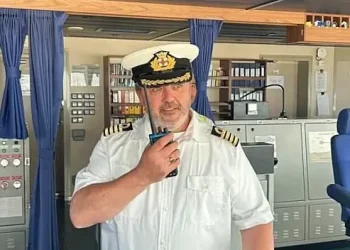On January 29, 2025, the UK government released an update on transport and growth, focusing on airport expansion and the transition to greener aviation.
This initiative aims to support sustainable aviation fuels (SAF) and enhance economic growth while reducing carbon emissions. The government’s efforts are part of a broader strategy to make the UK a clean energy superpower.
Greener Aviation Initiatives
The UK’s Sustainable Aviation Fuel (SAF) Mandate is a key component of this strategy. It requires flights departing the UK to use greener fuels, with a goal of 10% sustainable fuel by 2030 and 22% by 2040.
This mandate not only supports thousands of skilled jobs but also contributes to significant economic growth.
SAF is made from sustainable sources like household waste or used cooking oil, reducing carbon emissions by an average of 70% compared to traditional fuels.
Sustainable Aviation Fuel Mandate
The SAF Mandate is part of the UK’s Plan for Change, aiming to make Britain a clean energy superpower. It is one of the world’s first sustainable aviation fuel mandates, positioning the UK at the forefront of decarbonizing air travel.
The mandate will drive demand for SAF, helping to establish a domestic industry that supports jobs and investment across the country. However, scaling SAF production poses challenges, including the need for expanded feedstocks and cost incentives.
SAF Mandate Targets
| Year | Sustainable Fuel Requirement | Expected Impact |
|---|---|---|
| 2025 | 2% | Initial implementation phase |
| 2030 | 10% | 1.2 million tonnes of SAF supplied annually |
| 2040 | 22% | Significant reduction in carbon emissions |
Economic and Environmental Benefits
The transition to greener aviation is not only environmentally beneficial but also economically promising. It supports thousands of skilled jobs and contributes to economic growth, aligning with the UK’s broader clean growth strategy.
This strategy aims to seize opportunities in the global low-carbon economy, improving productivity and creating good jobs. As the UK invests in sustainable aviation, it raises a thought-provoking question: Can this model be replicated globally to accelerate the transition to cleaner energy sources?
Expert Insights
Minister for Aviation, Mike Kane, emphasized the significance of the SAF Mandate in making aviation greener and more sustainable.
“From this moment on, aviation will be a greener, more sustainable form of travel and today marks a significant milestone for the UK SAF industry.”
Tim Alderslade, CEO of Airlines UK, highlighted the industry’s commitment to a net-zero future.
“UK airlines support the SAF Mandate as both a powerful and practical tool for driving down aviation carbon emissions and a clear signal that the industry is fully committed to a net-zero future.” – Tim Alderslade, CEO of Airlines UK
Related Policies and Initiatives
- Clean Growth Strategy: Focuses on achieving economic growth while reducing greenhouse gas emissions.
- Green Finance Strategy: Aims to mobilize green investment, creating new jobs and opportunities.
- Jet Zero Taskforce: Works towards achieving net-zero emissions in aviation by 2050.
Future Outlook
Looking ahead, the UK’s efforts in sustainable aviation are expected to have long-term impacts on both the environment and the economy. The development of a domestic SAF industry will not only reduce carbon emissions but also create a new sector for economic growth.
As the world moves towards cleaner energy sources, the UK’s leadership in this area could set a precedent for other countries.
Did You Know?
Further Reading
- GOV.UK: Clean Growth Strategy
- GOV.UK: Mobilising Green Investment
Closing Thoughts
The UK’s transition to greener aviation marks a significant step towards achieving a net-zero future. By investing in sustainable aviation fuels and expanding airport infrastructure, the government is not only addressing environmental concerns but also fostering economic growth.
As the world watches these developments, one cannot help but wonder what the future of aviation will look like with such innovative initiatives leading the way.









